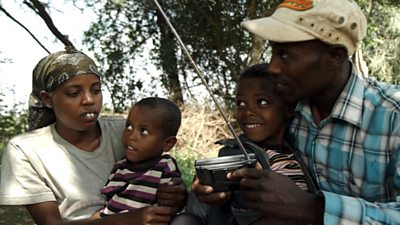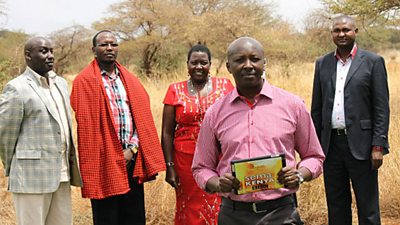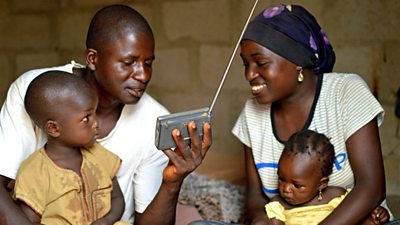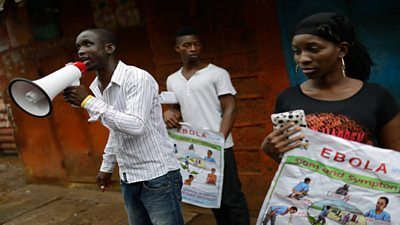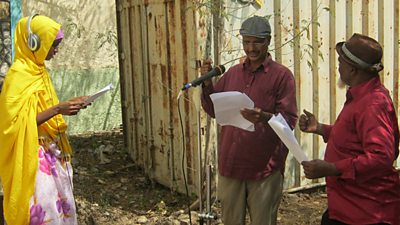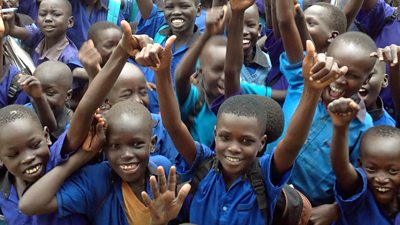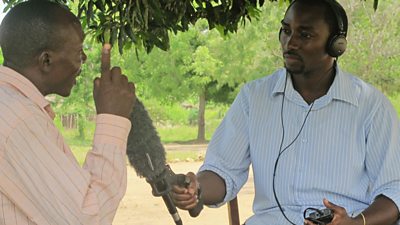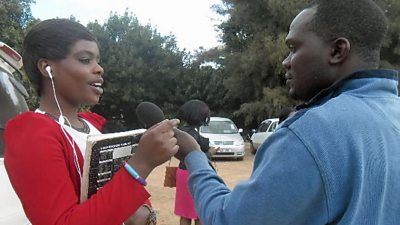Amid extreme and worsening weather patterns, including severe drought followed by torrential rains and flooding, farmers and herders are in need of support to understand these changes and how they can adapt their lives and livelihoods. Yet radio station presenters and journalists found it hard to understand scientists’ explanations of weather and climate change, so their listeners were not getting the information they needed.
To bridge this gap and support media stations to convey crucial information from the experts to communities in an understandable, practical way, ����ý Media Action partnered with five radio stations in the arid and semi-arid counties of Northern Kenya. Over a period of 15 months, we provided the journalists with editorial and technical support to produce relevant, accurate, culturally sensitive radio content with a focus on water scarcity, food insecurity and climatic adaptation issues.
All the partner radio stations had at least one dedicated weekly programme where content was broadcast in Swahili and the local languages.
I heard them saying on radio that seasons have changed and that we should not just plant maize as we mostly do but plant other crops like sweet potatoes and kunde (cowpeas) that don’t require a lot of rain and that mature within a short time. I also heard them say that we should move our livestock to safer grounds to prevent them from being washed away by flash floods. Before I never used to have this knowledge and used to be caught unware with rains and when livestock were grazing away from home,”
How we did it
We started by conducting formative research, to better understand what media rural communities have access to, and their knowledge of and attitudes around climate change and weather forecasting. Based on this research, we donated equipment and provided remote and on-the-job mentoring and training to journalists and broadcasters.
Our training covered how to use of a creative brief to plan programmes, how to identify a good story, scripting, painting with sounds, producing balanced content and managing interviews, and technical support for use and repair of equipment.
We also worked with them to foster stronger and more productive relationships with scientists and Meteorological Office officials, to enhance their reporting on weather and climate issues.
Most of the journalists who participated said they gained a better understanding of how media works, and are more confident conducting interviews.
In April 2021, the partner stations began broadcasting weekly radio content addressing issues related to water scarcity, food insecurity, and climate adaptation for rural communities.
As a result of the strengthened partnerships between scientists and journalists, the stations were able to produce well balanced, interesting radio programmes with accurate weather and climate information.
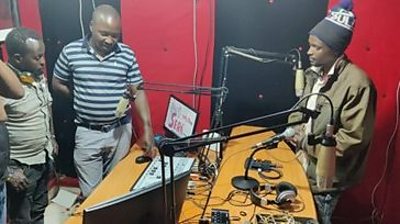
Listeners learned how to use water harvesting systems, when they could re-use water and how to treat water, allowing them to save time and money along with securing a more regular supply of water for their families and livestock.
And, with a better understanding of the importance of weather forecasts, listeners were better able to prepare and manage risks associated with bad weather.
Initially, the nearest water source was a borehole 9 kilometres from my home before we got the tank and water pan you saw near my home, and I used to spend a whole day from 5am to 5 PM before I get home from fetching water. The water was not enough, and the queues were long and sometimes people could sleep at the water point. Sometimes we could meet elephants and hyenas on the way and it was risky. Harvesting water this way has saved me time that I used to go and fetch water. It has also helped me save money which I now use to pay school fees for my children and spend the rest to run my home budget.”
In November 2021, ����ý Media Action received additional funding from Bristol University to produce radio content particularly focused on women. We supported the stations in producing a five episode radio drama series and held regular listener groups. We purchased 80 solar powered radios which were distributed to women and other listeners of the programmes through radio competitions.
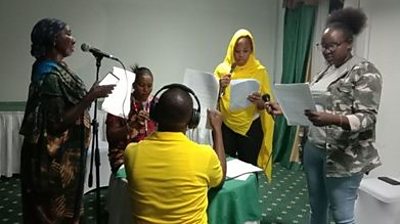
The radio programmes supported women with new techniques to ease some of their everyday burdens. Men were also encouraged to be more supportive of their wives and other women in their families.
The radio programme told us that we should strive to be self-reliant and not have to depend on men all the time. They told us that when rains start, that we should prepare our farms and start planting crops and also start kitchen gardens near the house. Many women in this village have started doing so and we are happy because in the past only men used to have money, but now even us women can have money from selling vegetables.”
In follow-up research, we found that many listeners had benefitted from advice they'd heard on the radio programmes: women in particular said they had more cash, as a result of reduced expenses or additional income, to spend on their families, and were healthier from being able to eat vegetables grown in a kitchen garden, as well as clean drinking water and better hygiene. Many listeners said this has made ‘life easier for them’, ‘improved their lives’, and has made them and their families feel ‘good’, ‘happier’ and ‘more content’.
The children have started to attend school regularly because currently they are not walking out and about taking care of the livestock. My wife is also freer to take care of the home and she has even opened a small shop because she does not need to walk long distances to fetch water. I am also becoming closer to my family because I am not spending many weeks and months away from home as I would before while looking for pasture for my animals,”
Despite enthusiasm, some listeners said they still face challenges including poverty and a lack of support from authorities which prevent them from acting on the advice.
Learnings and future recommendations
Our final research found that both journalists and experts reported that they would continue using the production and editorial knowledge and skills they learned from ����ý Media Action, even as lack of funding and insecurity in some areas of the country cause concern about their ability to work effectively. And audiences were very positive about the changes they’d made, as they were able to stem their losses.
With additional funding we were able to expand our work into Somalia. We translated our online course on climate change reporting into Somali and supported the first cohort of local Somali journalists to complete the course with online mentoring.
Learn more about Down2Earth Somalia here.
Project information
|
Project name |
Down2Earth |
|
Funder |
European Commission |
|
Dates |
Oct 2020 to Dec 2023 |
|
Themes |
Resilience, climate |
|
Outputs |
Capacity-building for local media to strengthen their capacity to produce relevant and accurate, culturally sensitive content with a focus on water scarcity, food insecurity, and climatic adaptation for rural communities. |
Our projects in Kenya
-
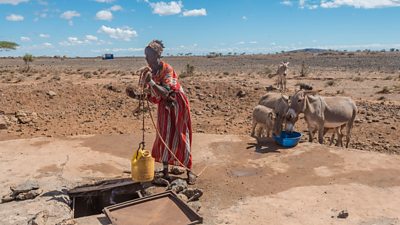
Down2Earth
We provided local journalists with editorial and technical support to produce content on weather and climate issues, with a focus on water scarcity, food insecurity and climate adaptation. -
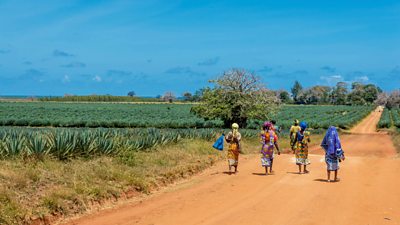
Come rain or shine: Joining forces to communicate the weather better
Through improved climate and weather journalism, we're aiming to help farmers, fishermen and pastoralists in three countries in East Africa to better prepare for weather events. -
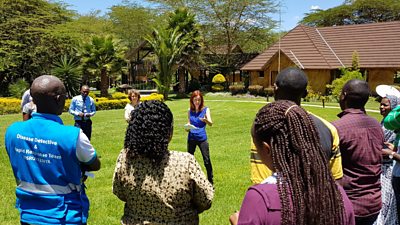
Lifeline training for media on communicating in emergencies
We’re training media partners across Africa and Asia on communicating in humanitarian emergencies, supporting them to provide trusted, accurate and timely information that is for affected and at-risk people – not just about them. -
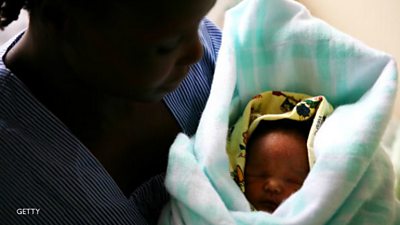
Improving child health through local radio
Using local radio and multi-media toolkits to help save lives of premature and low weight babies in Kenya.

